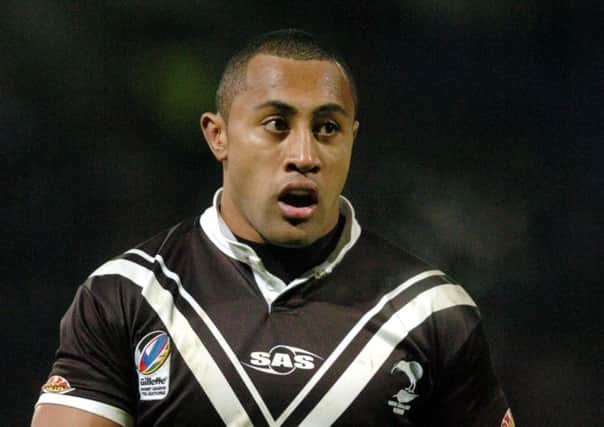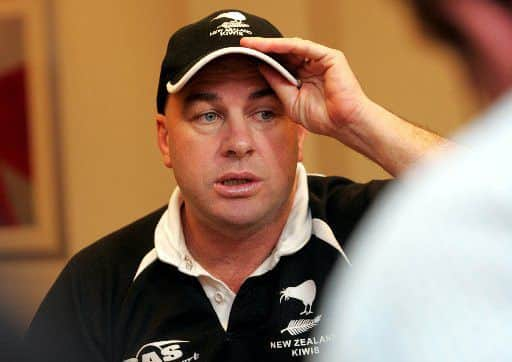Bygones: The moment when New Zealand became true force on international stage


That, though, was not always the case with the Kiwis for a long time being third fiddle behind Australia and Great Britain.
A major turning point in their trajectory, however, was the 2005 Tri-Nations when they produced arguably one of the most stunning results in Test match history.
Advertisement
Hide AdAdvertisement
Hide AdUnder Brian ‘Bluey’ McClennan – the man who would later lead Leeds Rhinos to two Super League titles – New Zealand inflicted a stunning 24-0 victory over the revered Kangaroos in the final at Elland Road in Leeds.


Although they had beaten Wayne Bennett’s side earlier in the competition, prospering 38-28 in Sydney with the help of a hat-trick from former Leeds centre Clinton Toopi, they had then been edged out 28-26 in Auckland in the group stages before heading over to the UK and everyone expected the status quo of Australia winning the actual silverware to remain.
Let’s not forget, the Tri-Nations holders had not been beaten in an international tournament or series for fully 27 years when France – of all teams – defeated them over two Tests in 1978.
Admittedly, this ‘Roos side were deprived of their stellar half-backs of Darren Lockyer and Andrew Johns.
Advertisement
Hide AdAdvertisement
Hide AdHowever, Trent Barrett and Craig Gower were more than decent replacements, they had had the Golden Boot winner Anthony Minichiello at full-back, the outstanding Danny Buderus at hooker and stylish centre Mark Gasnier in fine form, too.


It meant no one really saw what was coming; not only did the brilliant Kiwis prevail but they did so with an utterly one-sided destruction of their fierce rivals keeping them scoreless in a masterclass that stunned the rugby league world.
Rarely has there been a better execution of a gameplan than the way in which the tourists, captained by fearsome prop Ruben Wiki and with the classy Stacey Jones at scrum-half, picked apart their bemused opponents.
It was the first time since 1952 that the Kiwis had beaten Australia in a series or tournament and, such was the reaction Down Under, Bennett resigned from his post just over a week after the events in Leeds.
Advertisement
Hide AdAdvertisement
Hide AdBennett, of course, is now in charge of England – after assisting Stephen Kearney in New Zealand’s 2008 World Cup success – but he came unstuck once more against the Kiwis on Saturday when they lost their Four Nations opener 17-16.
In his third game in charge, it was a first win for David Kidwell – whose Kiwis take on Australia in Coventry this Saturday – since replacing Kearney as coach.
Kidwell, meanwhile, played second-row on that famous night in 2005.
He won 24 caps for his country from 1999-2008 culminating in their 2008 World Cup triumph, played for Australian clubs Adelaide, Parramatta, Sydney Roosters, Melbourne and South Sydney and also made 32 appearances in Super League for Warrington from 2001-02.
Advertisement
Hide AdAdvertisement
Hide AdAlso in that 2005 pack was former Warrington Wolves star Louis Anderson with Bradford Bulls centre Shontayne Hape deployed in the unfamiliar role of loose forward.
Try-scorers for the Kiwis were Manu Vatuvei (2), centre Paul Whatuira – who would later play for Huddersfield Giants – and Brent Webb, who became part of McClennan’s fine side at Headingley.
The Four Nations concept began initially with a Tri-Nations series in 1999 featuring Australia, New Zealand and Great Britain.
Coached by Andy Goodway, Britain began their tour badly, narrowly avoiding an embarrassing defeat by amateur team Burleigh Bears, and went on to suffer crushing defeats to their big two rivals.
Advertisement
Hide AdAdvertisement
Hide AdThat meant the ultimate humiliation of being forced to play a curtain-raiser to the final against the New Zealand Maori and they only just won that before watching the Kangaroos grab a dramatic 22-20 win over the Kiwis to take the first title.
Next, in 2004, the Australians and New Zealand opened the tournament with a draw in Auckland before it switched to England.
The three teams all played each other twice and Great Britain gained victories over the Kiwis in Huddersfield and Hull before beating the Kangaroos 24-12 in Wigan to go through to the final as group leaders.
However, Brian Noble’s men came a cropper in the final at Elland Road, where they were soundly beaten by 44-4 as Australia retained their crown.
Advertisement
Hide AdAdvertisement
Hide AdThen came the Kiwis glory in 2005 before, a year later, the Sydney Football Stadium was the venue for one of Great Britain’s finest moments as they beat the Kangaroos 23-12 in a fiery encounter best remembered for the punch from Willie Mason that floored Stuart Fielden.
It was the Lions’ first win in Australia since 1992 but it was not enough to take Noble’s men through to the final after they suffered a second loss to New Zealand.
Australia went on to win 16-12 in extra-time in the final, thanks to Lockyer’s 87th-minute try. There was controversy earlier in the tournament when New Zealand were docked two points after Nathan Fien was deemed ineligible to represent them.
After a gap of three years and a switch from Great Britain to England, the tournament was expanded to four nations with the addition of France, under coach Bobbie Goulding, but they proved to be no match for the big three.
Advertisement
Hide AdAdvertisement
Hide AdEngland followed up their opening win over the French with a 20-12 win over New Zealand in Huddersfield to clinch their place in the final. However, Australia prevailed 46-16 at Elland Road in a match which proved to be Tony Smith’s last match in charge as he announced his resignation within hours to revert to club coaching with Warrington.
England went into the 2010 tournament Down Under under new management following the promotion of Steve McNamara from assistant coach but they never seriously threatened to get past either of their hosts.
Their only victory came at the expense of Papua New Guinea, with Harlequins centre Tony Clubb scoring four tries in a 36-10 triumph in a double header at Auckland’s Eden Park.
Australia beat New Zealand 34-20 that day but the Kiwis turned the tables in the Brisbane final a week later, winning 16-12.
Advertisement
Hide AdAdvertisement
Hide AdWales made their debut in 2011 under Iestyn Harris after winning the 2010 European Cup and played New Zealand in a double header at Wembley.
McNamara introduced a host of new faces from the NRL, including Jack Reed and Gareth Widdop, and they gave Australia a scare at Wembley with Ryan Hall scoring two tries.
A 28-6 win over the Kiwis in Hull earned England a place in the final but they were once more no match for Australia, who regained the title to give Lockyer a fitting send-off.
After another three-year gap, Samoa became the latest club to make their Four Nations debut in 2014 after winning the Pacific Cup and they made England work for a 32-16 victory in the opening match in Brisbane before pushing New Zealand even closer in Whangarei.
England went on to suffer narrow defeats in their next two matches to bow out while the Kiwis claimed their third title with a 22-18 win in Wellington.